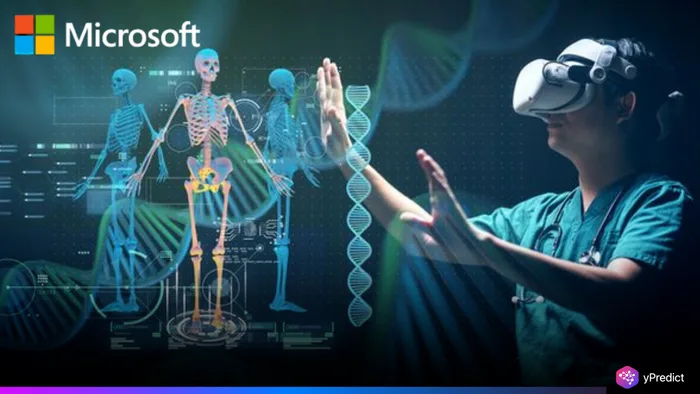
In a major leap for artificial intelligence in healthcare, Microsoft has launched a powerful diagnostic tool that claims to outperform even the best human doctors in solving complex medical cases. The system, known as the Microsoft AI Diagnostic Orchestrator (MAI-DxO), is modeled on a panel of five virtual specialists. These AI “doctors” discuss cases like real physicians, debating symptoms and narrowing down the diagnosis.
The technology has wowed a large number of participants in initial tests. It solved almost 86 percent of complicated cases reported in The New England Journal of Medicine. This is more than four times the success rate of human doctors under the same testing conditions, according to co-founder Dr. Mustafa Suleyman. As tempting as the results seem to be, experts are now emphasising caution and thorough peer review before attempting to implement it broadly.
How Microsoft’s AI Panel Works Like a Virtual Team of Doctors
MAI-DxO emulates a group consultation. Every AI model represents its own specialty area and they evaluate the case against the supplied patient data. Similar to a virtual roundtable, they relay opinions, weigh evidence, and agree on a single diagnosis. It’s quick, consistent, and cheap, the very things that the healthcare system is always going to want.
However, the AI does not see or question a human being. It only has the case files to work from: it cannot replicate real-world practice. The opposition claims that this is not a proper representation of medical practice, since intuition, conversation and physical signs are as important as data does in medical practice..
AI Is Useful But Not a Doctor Replacement
Despite the tool’s accuracy, researchers and doctors remain cautious. Professor Adam Dunn from the University of Sydney believes the AI tool is valuable as a digital assistant but cannot replace the nuanced judgment of a trained medical professional.
“A doctor doesn’t just read data. They interact with patients, adjust questions based on responses, and spot subtle signs,” he said. “An AI trained on data from a single hospital can’t address the needs of a global, diverse population.”
There’s also concern around fairness. If the training data lacks representation from marginalized groups, AI decisions could unintentionally reinforce healthcare inequality.
Digital Medical Scribes Are Saving Time for Doctors
While diagnostic AI grabs headlines, another application of AI in healthcare is quietly transforming daily practice. Known as digital medical scribes, these tools record doctor-patient conversations and generate summaries for official medical records.
According to Dr Michael Bonning, chair of public health at the Australian Medical Association, this allows doctors to spend more time listening to patients rather than typing notes. “In a typical eight-hour shift, a clinician might spend over an hour just entering data,” he said. “AI scribes can take over that task, freeing up doctors for what really matters, care.”
Still, doctors remain in control. They review and approve the final notes to ensure accuracy and responsibility stay human.
What the Public Thinks About AI in Healthcare
Public response to AI-assisted healthcare has been mixed. Many welcome tools like the AI medical tool and digital medical scribe as long as humans remain in charge.
“I think it’s a great support system but it shouldn’t replace human doctors,” one person told 7NEWS. Another commented, “A human still understands context better. It’s scary but interesting to see where AI is going.”
This cautious optimism reflects a growing trust in technology, tempered by the belief that medicine is about more than just matching data to diagnoses.
Future of AI in Medical Practice Is Promising But Needs Oversight
Microsoft’s AI medical program may promote a major change in how physicians conduct diagnosis, particularly in areas with little resources, or for difficult patients. However, for now, experts contend: human review is essential.
It must go through peer review globally, safety checks, and real-world testing before it rolls out. With regulation, AI can be a great aid in health care, servicing clinicians by saving them time, improving accuracy and broader access with the human component still in place.






